9 start with P start with P
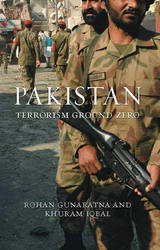
As made abundantly clear in the classified documents recently made public by WikiLeaks, Pakistan is the keystone in the international fight against terrorism today. After the US-led coalition targeted terrorist groups operating in Afghanistan, these groups, including al Qaeda and the Taliban, relocated to the Federally Administered Tribal Area of Pakistan. From its base in this remote, inhospitable region of Pakistan, al Qaeda and its associated cells have planned, prepared, and executed numerous terrorist attacks around the world, in addition to supporting and waging insurgencies in Iraq, Afghanistan, Yemen, Somalia, and elsewhere.
This book is the first detailed analysis of the myriad insurgent groups working in Pakistan. Written by well-known expert on global terrorism Rohan Gunaratna and Khuram Iqbal, a leading scholar in Pakistan, the book examines and reviews the nature, structure, and agendas of the groups, their links to activists in other countries, such as India and Iran, and the difficulties of defeating terrorism in this part of the world. Drawing on extensive field research and interviews with government officials and former terrorists, the authors argue that Pakistan faces grave and continuing pressures from within, and that without steadfast international goodwill and support, the threats of extremism, terrorism, and insurgency will continue to grow.
This timely and necessary book argues that if the international community is to win the battle against ideological extremism and operational terrorism around the world, then Pakistan should be in the vanguard of the fight.
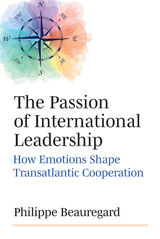
How do international leaders emerge and why are they successful in bringing followers to converge on their positions? The Passion of International Leadership draws on recent advances in political psychology and state-of-the-art research in International Relations to go beyond current knowledge and simplistic accounts of international leadership. It tells surprising and intense stories of policymakers at the head of great powers attempting to cooperate during crisis moments, and uses these stories to challenge commonly held beliefs and intuitions about international leadership.
Beauregard explores international leadership in four cases of transatlantic cooperation when Western policymakers were confronted with foreign conflicts, like civil or secessionist wars. He provides a fascinating study of the recognition of Slovenia, Croatia, and Bosnia during the wars in Yugoslavia; the peace mediation during the Russia-Georgia war in 2008; the adoption of economic sanctions against Russia over the conflict in Ukraine; and finally, cooperation on striking against the Islamic State in Iraq and Syria. The book argues that leaders are driven by their convictions, and that they must strike a balance between the intense emotions associated with their beliefs and their need to represent a broader community. At the same time as they seek to bring followers on board by persuading them, they need to pay attention to emotionally contagious and resonant events that can alter the course of international cooperation.

Trends in the number and scope of peace operations since 2000 evidence heightened international appreciation for their value in crisis-response and regional stabilization. Peace Operations: Trends, Progress, and Prospects addresses national and institutional capacities to undertake such operations, by going beyond what is available in previously published literature.
Part one focuses on developments across regions and countries. It builds on data- gathering projects undertaken at Georgetown University's Center for Peace and Security Studies (CPASS), the Stockholm International Peace Research Institute (SIPRI), and the Folke Bernadotte Academy (FBA) that offer new information about national contributions to operations and about the organizations through which they make those contributions. The information provides the bases for arriving at unique insights about the characteristics of contributors and about the division of labor between the United Nations and other international entities.
Part two looks to trends and prospects within regions and nations. Unlike other studies that focus only on regions with well-established track records—specifically Europe and Africa—this book also looks to the other major areas of the world and poses two questions concerning them: If little or nothing has been done institutionally in a region, why not? What should be expected?
This groundbreaking volume will help policymakers and academics understand better the regional and national factors shaping the prospects for peace operations into the next decade.
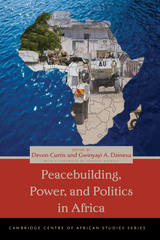
Peacebuilding, Power, and Politics in Africa is a critical reflection on peacebuilding efforts in Africa. The authors expose the tensions and contradictions in different clusters of peacebuilding activities, including peace negotiations; statebuilding; security sector governance; and disarmament, demobilization, and reintegration. Essays also address the institutional framework for peacebuilding in Africa and the ideological underpinnings of key institutions, including the African Union, NEPAD, the African Development Bank, the Pan-African Ministers Conference for Public and Civil Service, the UN Peacebuilding Commission, the World Bank, and the International Criminal Court. The volume includes on-the-ground case study chapters on Sudan, the Great Lakes Region of Africa, Sierra Leone and Liberia, the Niger Delta, Southern Africa, and Somalia, analyzing how peacebuilding operates in particular African contexts.
The authors adopt a variety of approaches, but they share a conviction that peacebuilding in Africa is not a script that is authored solely in Western capitals and in the corridors of the United Nations. Rather, the writers in this volume focus on the interaction between local and global ideas and practices in the reconstitution of authority and livelihoods after conflict. The book systematically showcases the tensions that occur within and between the many actors involved in the peacebuilding industry, as well as their intended beneficiaries. It looks at the multiple ways in which peacebuilding ideas and initiatives are reinforced, questioned, reappropriated, and redesigned by different African actors.
A joint project between the Centre for Conflict Resolution in Cape Town, South Africa, and the Centre of African Studies at the University of Cambridge.
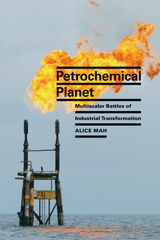
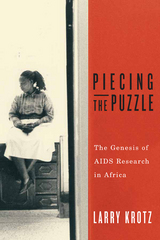

After a historical review of policing in the United States and Europe over the past century, Huggins reveals how the United States, in order to protect and strengthen its position in the world system, has used police assistance to establish intelligence and other social control infrastructures in foreign countries. The U.S.-encouraged centralization of Latin American internal security systems, Huggins claims, has led to the militarization of the police and, in turn, to an increase in state-sanctioned violence. Furthermore, Political Policing shows how a domestic police force—when trained by another government—can lose its power over legitimate crime as it becomes a tool for the international interests of the nation that trains it.
Pointing to U.S. responsibility for violations of human rights by foreign security forces, Political Policing will provoke discussion among those interested in international relations, criminal justice, human rights, and the sociology of policing.
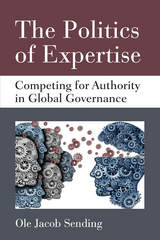
Drawing on insights from sociology, political science, and institutional theory, Sending challenges theories centered on particular actors’ authority, whether it is the authority of so-called epistemic communities, the moral authority of advocacy groups, or the rational-legal authority of international organizations. Using in-depth and historically oriented case studies of population and peacebuilding, he demonstrates that authority is not given nor located in any set of particular actors. Rather, continuous competition for recognition as an authority to determine what is to be governed, by whom, and for what purpose shapes global governance in fundamental ways.
Advancing a field-based approach, Sending highlights the political stakes disguised by the technical language of professionals and thus opens a broader public debate over the key issues of our time.
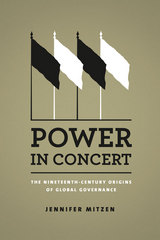
READERS
Browse our collection.
PUBLISHERS
See BiblioVault's publisher services.
STUDENT SERVICES
Files for college accessibility offices.
UChicago Accessibility Resources
home | accessibility | search | about | contact us
BiblioVault ® 2001 - 2024
The University of Chicago Press









